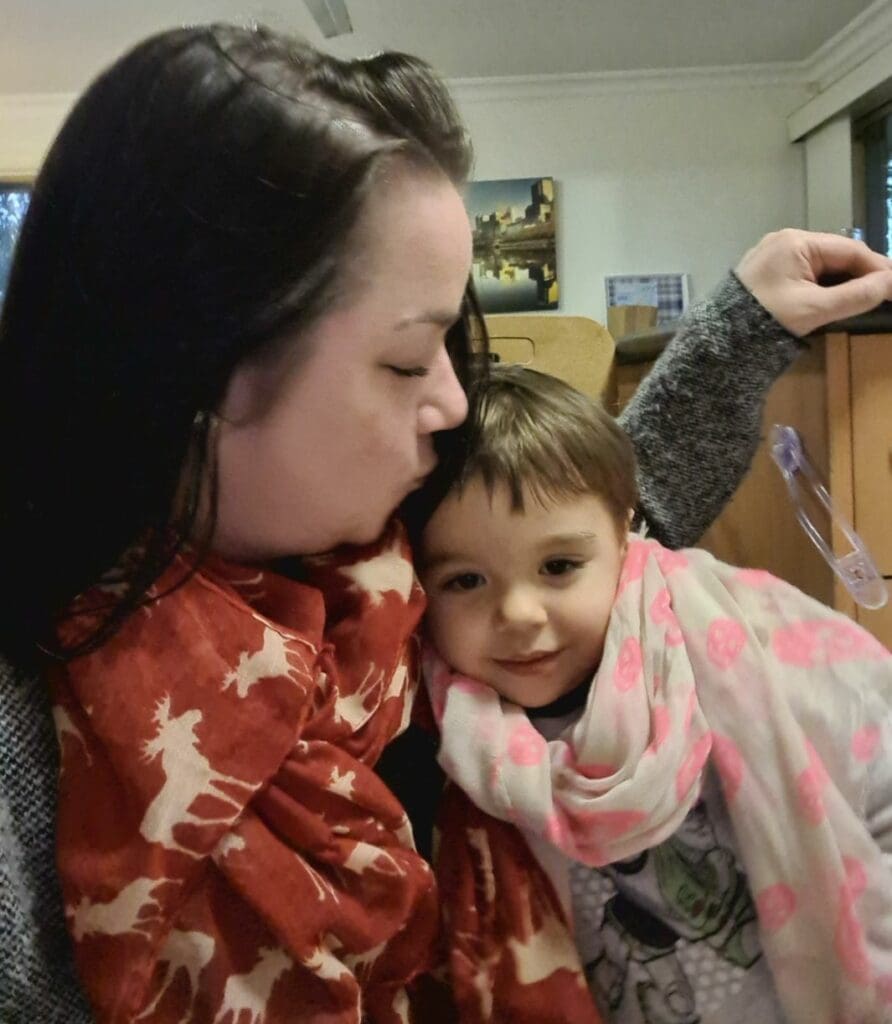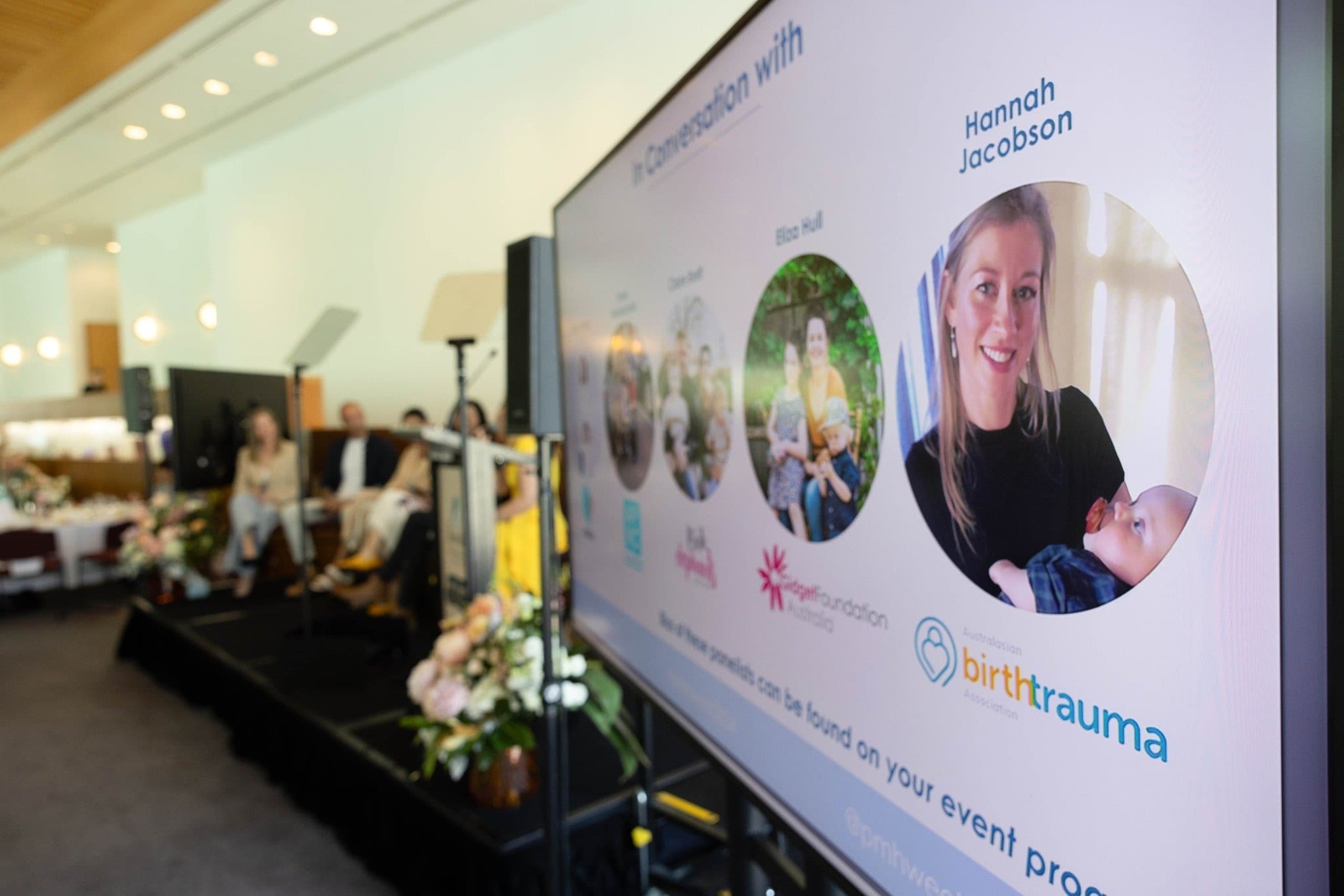Trigger Warning: This birth story involves IVF and birth trauma. It discusses induction, failed insertion of epidural, and inadequate pain relief. If you are triggered by these topics you may wish to skip this blog or read it once you have support available. If you are seeking support for your birth trauma, you may wish to contact our Peer Support Service.
My husband and I were lucky to get pregnant on our first round of IVF, after almost two years of trying on our own. We got two embryos from our first cycle. Our first embryo transfer didn’t work, but we transferred the second one just after my 38th birthday and it worked. We were over the moon, we couldn’t believe it had worked so quickly. A friend of mine had also started IVF six months before us and they had not had any success, so I was also feeling guilty that it happened so quickly for us. I’ve read that pregnancy after infertility can lead to a kind of survivor guilt and I really relate to that.
I had quite an easy pregnancy. I’ve always been a go-with-the-flow type so I didn’t want to develop a particular birth plan because I thought that would be setting myself up for failure if things didn’t go according to plan. Instead I always said I’m open to whatever it takes to keep myself, and our son, alive. Because I had gestational diabetes I was induced at 39 weeks and five days gestation.
On the day of my induction the doctor came in to check my cervix. I was already two centimetres dilated so she said I wouldn’t need the gel and they would be able to break my waters. I said, “Okay,” meaning that I understood what she was saying. I assumed she would need to go away and do some sort of preparation, but she immediately started trying to break my waters without warning. I wasn’t expecting it so it was a shock. It was also excruciating. I was shouting out in pain and the midwife offered me gas to get through it. I still don’t know if it was the doctor’s skill or if it’s always difficult, but she had to try a few different tools and it seemed to take far longer than it should have.
It all went downhill from there. I was hooked up to the drip and it didn’t take long for very intense contractions to start. It went from zero to 100 so quickly. I asked for an epidural but by the time the anaesthetist arrived there was barely any break between my contractions. He made at least five attempts over about 45 minutes to insert the needle, but because of my contractions he couldn’t get it into the right position. My husband was stuck in a chair several feet away and couldn’t even be near me because I was hooked up to the drip and the heart rate monitors. I was still having the gas, which really wasn’t helping my pain, but it was impairing my ability to focus or concentrate. It was completely overwhelming and I couldn’t do anything to stop it. Eventually the anaesthetist called for someone more senior to help him, but by the time they arrived I was already nine centimetres dilated and they told me it was too late and I would need to deliver without pain relief.
That was the moment that completely broke me. I so clearly remember that moment and thinking that I couldn’t possibly survive it. If I didn’t actually die, I thought I was going to have a complete mental breakdown and end up catatonic. I cried that I couldn’t do it but there was no other option. My son was delivered after 13 minutes of pushing, five hours after my waters were broken. I had a superficial tear and about six stitches.
When my son was placed on my chest I remember just looking down at him and all I could think was thank f*** that is over. I felt numb. I waited for that rush of love everyone tells you about. My husband was looking at us with tears in his eyes. And I felt nothing. When I look at the photos of those first minutes all I can see is the emptiness in my eyes.
Over the next few days and weeks, our friends and family all came to visit. Everyone cried when they saw our son, they said how much they loved him and how lucky we were to have our IVF miracle. I couldn’t stop thinking about the birth. It was replaying in my mind over and over. I tried to tell people I was actually feeling traumatised from the birth but it w always came back to “but now look what you have”. I remember having two separate conversations with my sisters-in-law. They were asking if it was just the most amazing love I’ve ever felt. I said “yeah”, and looked away to avoid eye contact so they couldn’t see that I was lying.
I spoke to my husband about how I was feeling, but how could I complain to anyone else? How could I complain about having a bad birth experience, or say that I wasn’t in love with my son, when friends were still struggling with infertility. We chose to have a baby, we put ourselves through IVF to have a baby, I felt like I needed to just suck it up and stop being ‘precious’. I needed to be grateful.
I’ve come a long way through reading about birth trauma and reading the other stories shared on the Australasian Birth Trauma Association website. My love for my son did eventually grow but it was definitely a slow burn and not an overwhelming instant love. He will be three in December and we’re going through IVF again trying for a sibling.
Occasionally on IVF forums people will share a story about how insensitive it is when someone complains about having a bad birth experience, when so many people struggle just to become pregnant at all. I understand it, but their being triggered by someone else expressing trauma is a trigger for me. Struggling with infertility and struggling with birth trauma are not mutually exclusive.
Occasionally on IVF forums people will share a story about how insensitive it is when someone complains about having a bad birth experience, when so many people struggle just to become pregnant at all. I understand it, but their being triggered by someone else expressing trauma is a trigger for me. Struggling with infertility and struggling with birth trauma are not mutually exclusive.
I was so surprised at the stigma associated with admitting I had a less than perfect birth experience. My birth trauma left me feeling physically and psychologically weak and scared. I would share my story, seeking acknowledgement and support. Instead, my vulnerability seemed to make people feel uncomfortable. When I admitted to people that I was finding it physically and mentally challenging to recover, I’d be told “all that matters is that you have a healthy baby”, or “your expectations were too high”, or “oh yes, that’s what it’s really like”.
Well if that’s what it’s really like – why don’t we talk about it? I look forward to a future where we’re stop worrying about scaring mums-to-be and instead respect them as adults.
If you would like to connect with a mum who has experienced birth trauma, please contact our Peer2Peer Support service to connect with one of our Peer Mentors.




